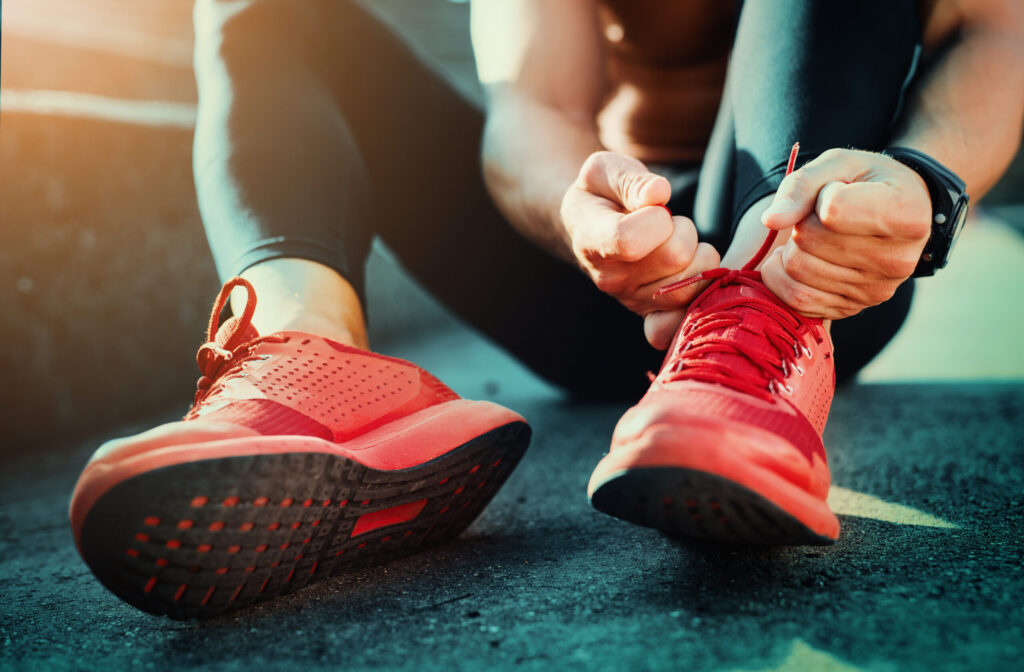
Training for a marathon is an incredible journey. Whether you’re a first-timer or a seasoned runner, it’s a test of endurance, discipline, and commitment. But amidst all the long runs, interval sessions, and carb loading, there’s one important part of prep that often gets overlooked: seeing a physiotherapist.
Many runners wait until they’re in pain to book an appointment. But what if we told you that seeing a physio before things go wrong could actually be the secret to a smoother, faster, and more enjoyable marathon experience?
Let’s dive into why, when, and how a physiotherapist can help you during marathon prep.
Why See a Physio Before the Marathon?
Marathon training places a huge demand on your body. You’re running more frequently, increasing your mileage, and pushing your physical limits. This can easily lead to muscle imbalances, tightness, overuse injuries, and fatigue especially if you’ve got any underlying weaknesses or movement issues.
A physiotherapist can help you:
- Identify and address imbalances or weaknesses that could become injuries
- Improve your running technique and posture
- Enhance recovery with manual therapy, dry needling, or massage
- Create a personalised warm-up or cool-down routine
- Suggest strength and mobility exercises specific to your body
Think of your physio as your musculoskeletal coach keeping your body in check as you rack up those training miles.
When Should You Book an Appointment?
Here are some key stages in your training when seeing a physio can make a big difference:
1. At the Start of Your Training Plan
If you’re just getting started, this is the perfect time to get a physio assessment. A pre-training screening helps identify potential problem areas early on. Your physio can spot inefficient movement patterns, weak glutes, poor core activation, or tight hips—things that might not be obvious to you but can show up as pain later.
Bonus: You’ll get tailored advice to make your training safer and more effective from day one.
Most marathon plans include gradual increases in long runs and speed work. These are the times when your body is under more stress. If something starts to feel “not quite right”—tight calves, sore knees, a niggling hamstring—it’s worth getting checked out early.
Small niggles often become big problems if ignored. A quick visit to your physio can nip them in the bud.
3. If You’ve Had Past Injuries
If you’ve ever had shin splints, IT band syndrome, plantar fasciitis, or any other running injury, you’re at a higher risk of recurrence. A physio can help you understand what caused the injury and make sure it doesn’t return.
They’ll assess your gait, strength, and flexibility, and offer targeted rehab or prehab exercises.
4. 4-6 Weeks Before Race Day
This is your final tune-up. Ideally, you want to go into taper week feeling strong, pain-free, and confident. A physio session at this stage can:
- Release any built-up tightness
- Check for any signs of overtraining
- Fine-tune your stretching and recovery routines
- Give you a last-minute injury prevention plan
It’s like getting a full body service before a big road trip.
What Happens During a Physio Session?
A good physio session during marathon prep isn’t just about lying on a table. It’s an interactive, movement-based assessment.
Here’s what you can expect:
- History check: Your physio will ask about your running experience, injuries, training volume, goals, and how your body is feeling.
- Movement assessment: This might include squats, lunges, balance work, or a running gait analysis.
- Hands-on treatment: Soft tissue release, dry needling, joint mobilisations, or taping techniques—depending on what’s needed.
- Exercise plan: Strengthening, stretching, or mobility exercises that are specific to your needs.
The aim is not just to treat, but to empower you with tools to manage your body throughout training.
Signs You Should Book Sooner Rather Than Later
While regular check-ins are great, here are some red flags that shouldn’t be ignored:
- Persistent aches or soreness that don’t settle after rest
- Pain that worsens with running
- Clicking, locking, or instability in joints
- Numbness, tingling, or sharp pains
- Limping or changes in your gait
If you’re experiencing any of these, don’t wait. The sooner you get assessed, the sooner you can recover and keep your training on track.
Final Thoughts
Training for a marathon is a big deal, and your body is your most valuable tool. Just like you wouldn’t drive a car across the country without checking the oil and tyres, you shouldn’t run 26.2 miles without checking in on your body.
Seeing a physio as part of your marathon prep can mean the difference between hitting the wall and hitting a personal best.
So, whether you’re aiming to finish, beat your last time, or simply enjoy the journey, give yourself the best shot by getting a physio on your support team.
Your feet, knees, hips and race-day self will thank you!
To book your appointment, call on the number below-
📞 Call 01604 385343 (Northampton) or 01908 713973 (Milton Keynes) or Book Online today!

